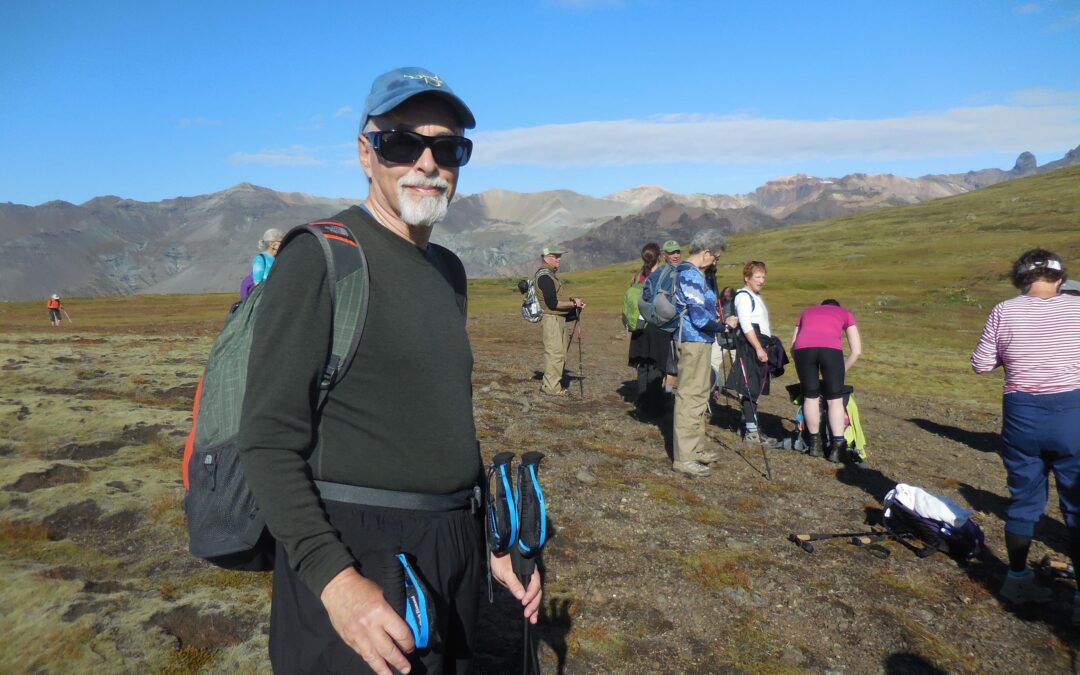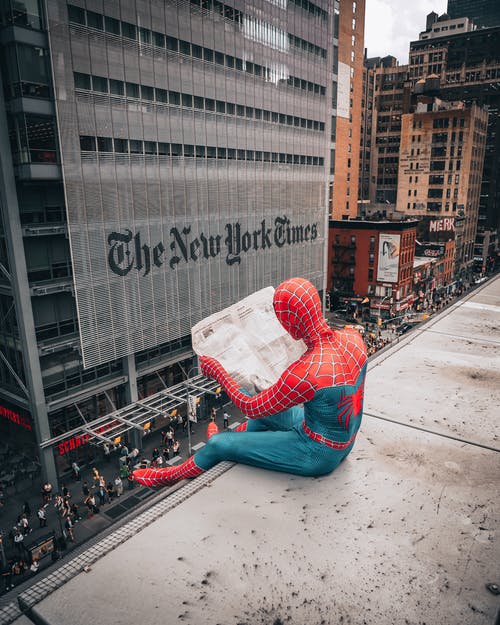
Oct 20, 2020
I was a financial planner for the last few decades before I “retired.” That career was a good fit for me and my skills, plus I had the opportunity to help others meet their goals.
I love to plan. I enjoy setting goals, especially big ones. Having a big goal is like being a mountain climber – facing a great mountain – and trying to find the path up. Then I use my creativity to make progress towards achieving my goals.
I know that plans don’t work perfectly, because nothing happens exactly as planned. But having a plan gives me the comfort of having a path to follow and a sense of accomplishment. I can climb that mountain.
All plans are based on assumptions, which are no more than best guesses about the outcomes of actions to be taken. During the pandemic, planning is particularly hazardous because of huge uncertainties.
I have modified my approach. I still set goals and do my planning, but. I am now willing to accept somewhat vaguer descriptions of my goals. I force myself to be more patient and flexible on the timing of achieving my goals. I continue to use innovation and creativity to make progress.
Instead of planning for the long-term future, I am setting shorter-term goals, typically up to a few months. As I make progress, I watch carefully how the results unfold. Then I modify my approach as needed.
It now feels like I am climbing up a number of smaller mountains. When I get to the top of each, I pause to look around. Only then do I realize what the current landscapes are. Afterward I plan out my next few steps.
I continue to plan because I have big goals to achieve. Planning gives me a sense of control over my life. But changing its scope helps to prevent huge anxiety as circumstances change.
Has your scope of planning changed during the pandemic?

Oct 13, 2020
I was in the New York times last Wednesday. It turned out not what I thought it would be.
Here’s the background. In June my wife Lucy Rose Fischer and I were the speakers in a podcast entitled: How Retirement Can Be the Best Years of Your Life. This was part of an ongoing series called “Revolutionize Retirement “which is run by author, psychologist, and life coach Dori Mintzer.
A month later I received a telephone call from a freelance contributor to the New York times. She was collecting information on how seniors were coping with the pandemic, especially if they can’t travel, see their grandchildren, or socialize.
The word “coping” raises a red flag with me. I see it as my personal mission to encourage people to find ways to thrive, not just cope. So I lectured her for nearly an hour about how heterogeneous seniors are. Many seniors choose a wide variety of activities, including Zooming with friends, pursuing hobbies, and working – for pay or not. Many are creative, contribute to society in a number of ways, and are busy with productive activities now.
I told her that I had written a book on this topic and was developing a new career. She assured me that she would mention both of those. I had visions of an article about me, possibly appearing in a prominent location in the newspaper.
Two months went by. The journalist sent me an email that an article would appear in the online edition of the Times. The article was very careful to mention how old I was and that I had moved downtown. There was no mention of my work or book. Interviews with a dozen other people were included in the article.
So my 15 minutes of fame came and went. I was thrilled and disappointed at the same time.
I think that if I had prepared for the meeting thinking more carefully about what they would want to write about and then discussed more newsworthy topics, the outcome might have been somewhat different.
Here is a link to the article: https://www.nytimes.com/2020/10/07/business/retirement/pandemic-life-seniors.html?searchResultPosition=1
Have you had your own 15 minutes of fame? What was that like for you?

Oct 6, 2020
The pandemic is restricting. One important way that I’ve been flourishing during the semi-quarantine has been to reach out to friends – by phone and Zoom – both old friends and new ones. Ironically, at this time of social isolation, I’ve made more new friends than at almost any other time of my life. This has been fun, but not really easy, and it’s been out of my comfort zone.
One approach I’ve used has been to contact ex- or old friends, from another time in my life. They are great candidates to become new and active friends. When I called a friend from 40 years ago to wish him a happy birthday, he was excited. It didn’t matter that he lived far away. The time gap melted away.
Through my business I reached out to meet totally new people on LinkedIn. This approach is not just for young people. I chose people if their profiles looked interesting and they were in the ballpark of being my age. Although LinkedIn does not state people’s ages, it frequently tells their year of graduation from college or years of their first job. I did the math.
I used LinkedIn’s messaging capability to ask them a question after I’d connected with them. For those that answered my question, I followed up through messaging additional questions or starting conversations. I invited the friendliest of them to a Zoom meeting, and we now had a dialogue going on. Some of these business relationships developed into friendships.
I’ve also found an entirely different group of people who are candidates for being good friends. These are people I know a little and have liked but have never gotten around to being friends. I’ve recently reached out to a few of them. I’ve been surprised by how much I’ve enjoyed developing those relationships.
It took some courage to reach out. I was vulnerable to rejection. It reminded me of dating, which in my case happened a long time ago. But through reaching out I found my life partner and best friend, Lucy Rose. We’ve been married almost 55 years now.
Who can you reach out to?

Sep 29, 2020
This pandemic is confining us both physically and mentally. How can you burst out of the bubble you’re in? Can you start a new hobby – an activity that is fun and engaging? Or expand a current interest or passion?
Here is my story with that. For many decades I have had a dream. Someday I wanted to play music in a string quarter.
I fell in love with classical music as a teenager. My father loved symphonies and my mother loved opera. They took me to a few classical concerts each year in the small city I lived in, and I checked out classical records (do you remember them?) from the public library.
I started playing clarinet in the fourth grade. I played it in my high school marching band, which performed at our high school’s football games. And I talked my way into the city-wide orchestra during my senior year of high school.
I went on to college, put my clarinet aside, and never picked it up again. I frequently listened to classical music on the radio and also assembled a small collection of records, then tapes, and then compact discs with a combination of classical and folk music.
I had always loved how the cello both looked and sounded. Four years ago, I had had enough of being only a consumer of music. I marched into a music store and told the owner that I was 73 years old and finally old enough to take up the cello.
When I signed up for cello lessons at MacPhail Center of Music in downtown Minneapolis, I was amazed that they assigned me a teacher, Jacqueline Ultan, who was so accomplished and well known as a performer.
I have played duets with my cello teacher Jacqueline, with my friend Charlie who plays harmonica (he plays the violin part in Bach duets) and with my neighbor Jennine who plays piano.
The music of string quartets still seemed out of reach. It was way too challenging for me now, and I doubt that accomplished players would have the patience to play with me.
But my teacher told me about a company called Music Minus One (MMO). They have recordings of many classical and jazz pieces with all the instruments except one.
Last week I looked through MMO’s catalog, and there it was – Schubert’s “The Trout Quintet,” one of my all-time favorite classical pieces. The files are MP3 (audio) recordings containing the other players and sheet music for the cello and me. “Thrilled” is not a strong enough word to describe how I felt.
I plan to work on this piece little by little and learn it in addition to the exercises in my regular lessons. Maybe when the pandemic is over, I will be able to play it live with others.
Do you have a new or expanded hobby? If so, please tell me if or how you work on it during the pandemic.

Sep 22, 2020
My body frequently reminds me that it is there. I am of an age where I have very mild and occasional aches and pains in one or another part of my body. Should I be concerned?
Like most people who are 60 or above, I also have a chronic health condition that needs to be managed on a regular basis. Actually, I have more than one chronic health issue.
I try not to worry about twinges and am mostly successful at that. But when my concerns rise above a threshold level, I take action. Here is what I do that you might consider if you are not already doing them yourself right now.
- When I have a health or wellness concern, I use Google and the Internet to identify questions to ask and terms to use when describing my situation. But I am rarely satisfied enough to leave it there.
- If my issue is urgent, I call the nurse who works with my doctor to get immediate help.
- My health care provider now has an online capability for me to ask questions of and get answers from my family practice physician, generally within a couple of days. I rarely use this capability, but it is terrific when needed.
- I have regular periodic visits to my physician. Before I go, I prepare a list of questions to ask. I give myself plenty of time to brainstorm and prepare the list. Because my time with my physician is short, it is critical that I am well prepared. Sometimes we discuss symptoms and treatments, sometimes I bring in general wellness questions to be answered.
This combination of actions has worked very well for me. It also serves as a model in other parts of my life. Here’s why.
There are a number of other parts of my life that I consider to be very important and that I don’t have the answers for. These include finances, taxes, and various aspects of my work. I can deal with and resolve most of the challenges of these area on my own, and that’s what I do. But if the stakes (time and money) of getting it right are high enough, I will pay to bring in an expert.
I use a process similar to what I do for my health issues. First, I will do some internet research on my own. I will then escalate my search to getting free information from friends and colleagues. If I decide that I need to meet with an expert, I will organize my questions so that I can use the expert’s time as efficiently as possible. If my issue is chronic, I will arrange for periodic help.
This process has worked very well for me. Its biggest challenge is deciding what in my life is not working as I would like it to and if the stakes are high enough to bring in a professional to help me make progress.
What important challenges do you have that would benefit from the help of an expert?

Sep 15, 2020
I care a lot about the upcoming presidential election. I know that my vote will be only one of millions. But I also know that I would hugely regret not having voted if my candidate lost.
My friend, Jim Rubenstein, is a retired attorney who has worked hard through the years to help eligible voters vote. Here is what he sent me about voting by mail during the pandemic this year in Minnesota.
Voting by mail from the comfort of your own home is easy and there’s no need to go to a public polling place on election day. Especially this year, as we all try to lower the risk of giving or getting COVID 19, the more people who vote by mail, the better.
For Minnesota’s primary election, voting by mail set new records. Officially, out of the total of 916,230 votes cast in Minnesota on or before primary election day on August 11, 60% were absentee and mail ballots.
General election voting, including the election for U S President, starts on September 18. Election Day is November 3.
Here are a few vote from home tips to keep in mind:
- You don’t need to be registered to request a vote by mail ballot: If you are not a registered voter, registration materials will be sent along with the ballot. Click here to make the request: Request Absentee Vote by Mail Ballot:
- Give yourself plenty of time: Request your ballot early, and it should arrive a few days after September 18, when the general election voting period begins. Once you complete your ballot, don’t delay putting it in the mail. The postage is already paid! Mail your ballot at least a week before the November 3 Election Day to avoid mail delays or the need for a last-minute rush to your election office or a drop box in your county.
- Follow the Instructions: You may hear about court rulings, new laws or regulations that would change Minnesota’s voting procedures. At any point, the most reliable information on the current voting procedures will be in the instructions you receive with your ballot. Follow them carefully. If you have questions go to the Minnesota Secretary of State website – mnvotes.org.
- Wear your “I Voted” sticker with pride: It comes in the mail with your ballot.
What are you thinking about voting this year?






